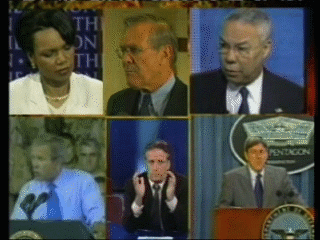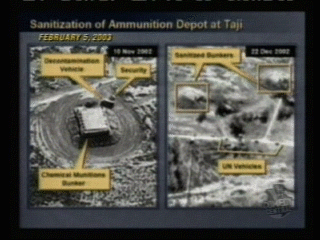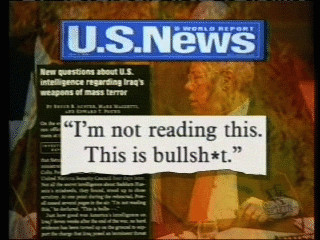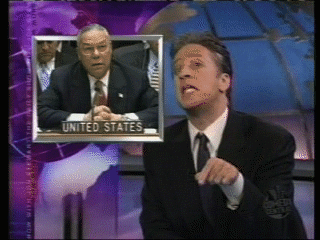Mr. Powell, there is such a thing as making a mistake. It would appear that, if you can admit to this one mistake, innocent people don’t have to die. (The threat to the world is not what you thought, so we can give Iraq more time to disarm, etc.)
Is is really so hard to admit that someone else purposely misled you and the Shrub — causing you to unknowingly mislead the American people?
We understand that you were acting accordingly, taking what you believed to be the truth into account. But the charade is over. Please let the madness stop.
Some Evidence on Iraq Called Fake
U.N. Nuclear Inspector Says Documents on Purchases Were Forged
By Joby Warrick for the Washington Post.
Documents that purportedly showed Iraqi officials shopping for uranium in Africa two years ago were deemed “not authentic” after careful scrutiny by U.N. and independent experts, Mohamed ElBaradei, director general of the International Atomic Energy Agency (IAEA), told the U.N. Security Council.
ElBaradei also rejected a key Bush administration claim — made twice by the president in major speeches and repeated by Secretary of State Colin L. Powell yesterday — that Iraq had tried to purchase high-strength aluminum tubes to use in centrifuges for uranium enrichment. Also, ElBaradei reported finding no evidence of banned weapons or nuclear material in an extensive sweep of Iraq using advanced radiation detectors.
“There is no indication of resumed nuclear activities,” ElBaradei said…
ElBaradei’s report yesterday all but ruled out the use of the tubes in a nuclear program. The IAEA chief said investigators had unearthed extensive records that backed up Iraq’s explanation. The documents, which included blueprints, invoices and notes from meetings, detailed a 14-year struggle by Iraq to make 81mm conventional rockets that would perform well and resist corrosion. Successive failures led Iraqi officials to revise their standards and request increasingly higher and more expensive metals, ElBaradei said.
Moreover, further work by the IAEA’s team of centrifuge experts — two Americans, two Britons and a French citizen — has reinforced the IAEA’s conclusion that the tubes were ill suited for centrifuges. “It was highly unlikely that Iraq could have achieved the considerable redesign needed to use them in a revived centrifuge program,” ElBaradei said.
Continue reading →





